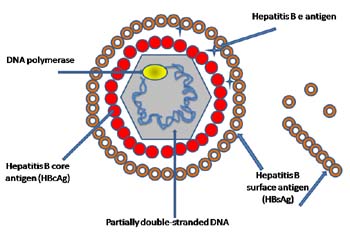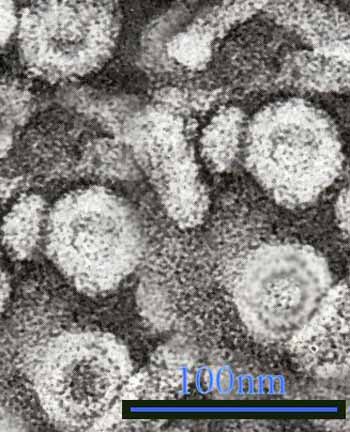
Hepatitis B virus structure. courtesy wiki

Hepatitis B virus under electron microscope. courtesy wiki
Hepatitis B
Hepatitis B it is a viral infection similar to Hepatitis A and Hepatitis C. Unlike Hepatitis A, however, the Hepatitis B virus (HBV) has the potential to seriously damage the liver and can cause chronic illness and even death.
Cause
Hepatitis B is caused by Hepatitis B virus (HBV). Similar to Hepatitis C it can range in severity from a mild illness lasting a few weeks to a serious, lifelong illness.
Transmission
Symptoms
Symptoms of HBV infections are same as HCV and range from mild for a few days to week and then subside or it can grow in some cases to full blown hepatitis with liver failure, but those cases are minimal. The general symptoms are almost same as any other viral infection like flu except a few signs of liver infection which sometime may not develop at all. some of the things which may show are Fever, Fatigue, Dark urine, Clay-colored stool, Abdominal pain, Loss of appetite, Nausea and Vomiting, Joint pain, jaundice.Hepatitis B is more prone to develop acute liver failure than HCV and can lead to death if not treated on time which requires liver transplant.
Diagnosis
Diagnosis of HBV is by blood test only. There are several tests which can diagnose HBV infections and can confirm it with other tests. These tests include checking different antigen and antibody for HBV in serum of a person.